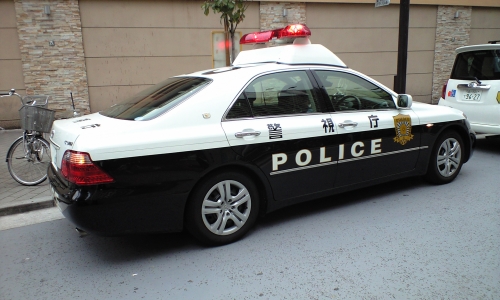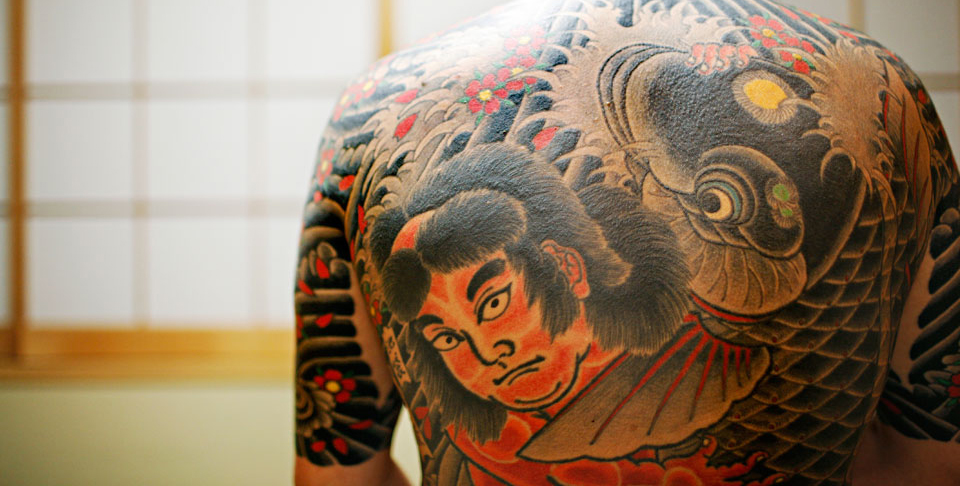
First, although there has been a significant uptick in technological crimes (credit card fraud, etc.), most crime that Japanese police deal with is low grade. Petty theft is not really a problem. It’s not unusual at all for department stores to deliver your purchases and leave them right in front of your door, with no fear that they’ll be stolen. The two most favored items for theft in Japan are (drum roll please)–bicycles and umbrellas. That’s right, a good portion of any Japanese police officer’s day is spent taking reports on stolen bicycles and tracking them down. (If they took reports on umbrellas the entire Japanese criminal justice system would grind to a halt.) Bicycles have to be registered, just like a car. When my bicycle was stolen, my Japanese boss took me to the local police station. More than an hour later, I signed a report written completely in Japanese. And within a week, the police sent for me. Out of the millions of bicycles in Japan, they had found mine, not too awfully far from my apartment. Now, that’s efficiency.

But major crimes do happen in Japan. The Super Free rape club claimed, by some estimates, 500 victims before it was outed in 2003. Handguns are banned in Japan, and hunting rifles are strictly controlled, so, a mystery author can be a bit more creative in the choice of murder weapons. While knife murders are common, killers have also used such interesting methods as arsenic-laced curry.
In a society where honor and saving face are extremely important, new motives for murder show up, and grudges for what we might consider minor incidents can last a long time, like in the Iccho Itoh murder in 2007. Itoh was the mayor of Nagasaki, and he was murdered by a member of the Yakuza over damage to the mobster’s car at a city construction site four years before.


I lived in Sendai, and it was common knowledge which buildings served as headquarters for the Yakuza. And it quickly became apparent that some of my students (I taught English for the YMCA) made more than I did riding around the city on their bicycles and plastering every telephone booth and the entrance to every love hotel (think “no-tell motel”) with baseball cards for hookers, so to speak. Every morning, little old Japanese ladies would sweep the street clean of the cards. And every evening, my students were dutifully out there, replacing the cards that came complete with photos, statistics, favorite positions, and contact numbers. But before the blatancy of this shocks you, this is one of the Yakuza’s more respectable sidelines. Prostitution is legal in Japan. Think about the possibilities there!
For more about Japanese crime fiction, check out:
Crime and Mystery Writing in Japan
Image courtesy of iMorpheus and Stippy.com
Tony Hays, author of The Beloved Dead.

It’s indeed interesting to see how unbelievably popular murder mysteries are in Japan, even though murder is a fairly rare crime in Japan. I had to go through the files of the Japanese criminal system for university last year, and was quite surprised to see how few murders there were. You’d really think otherwise with all the (exaggerated) news coverage on (big) crimes in Japan.
My bike luckily never got stolen in Japan, but I guess that just leaving (‘dumping’) my bike somewhere when I left the country is some sort of crime ^_^”’
You’re right. I was surprised at how much, in many ways, family life resembled the US in the 1950s. Few concerns about children being abducted or violent crime.
This week is devoted to old-school time in our university. I took a part as reporter of japanese culture for https://www.facebook.com/edussoncom last week. We made useful blog in result. Good job.
site
Thnaks for Shaering it